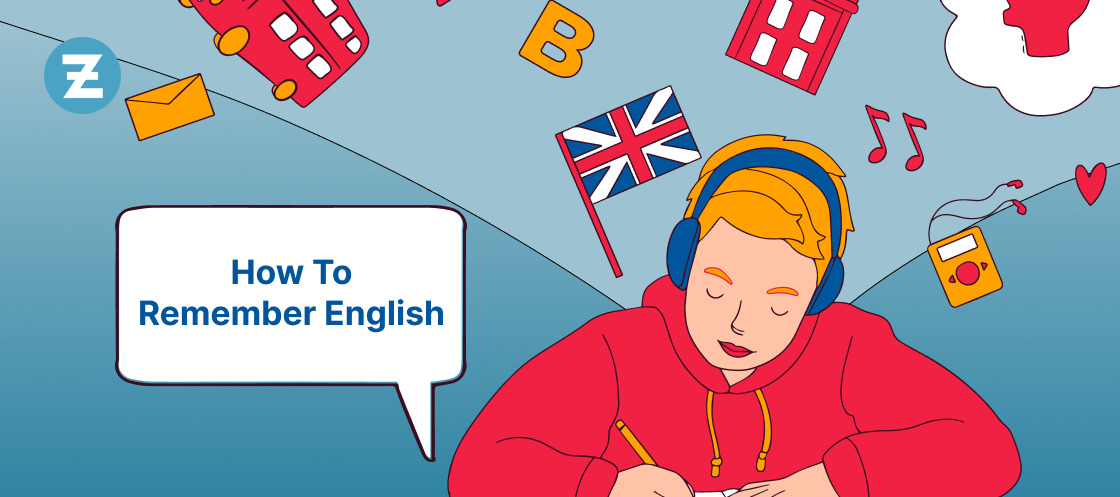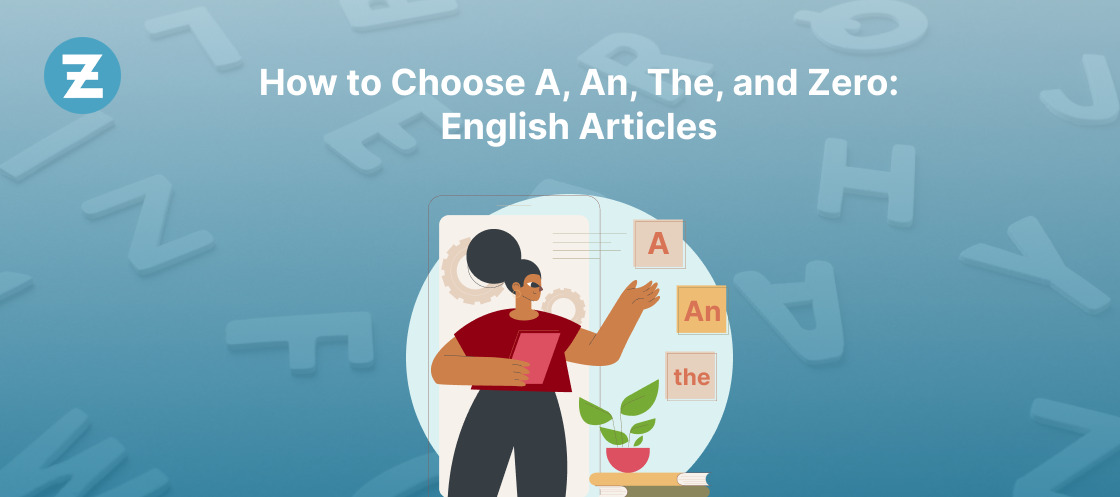Slang is the heartbeat of language. It gives it energy and innovation. Unlike a clock that just ticks, communication pulses with life. As we live into 2023, there’s a whole new batch of slang to play around with for English speakers.
No matter where you are in the world, Los Angeles or even London, people have their own way of expressing themselves that has become ingrained into daily life.
So, what is this slang? Well, we’ll dive in and find out. This guide covers all the hippest and cutting-edge slang that is breaking barriers globally. From acronyms to phrases, you’ll be amazed at how creative people can get with a language.
If you’re looking to learn a new way to talk or just want to impress your friends with how many words you know, then this journey will give you an exhilarating roller coaster through contemporary English slang.
Read Also: Out-of-the-Box Birthday Greetings: Innovative Ways to Say “Happy Birthday” in English
Top Trending Words in English That Native Speakers Use All the Time
The way we speak is always changing. But the beauty of this is how our language has grown with us.
Native speakers are constantly seeking new trending words to add to their vocabulary. It makes normal conversations a lot more interesting and can turn a boring sentence into something that holds more weight.
Here are some of the top trending words in English to know.
-
Zenplode
Do you ever feel so overwhelmed and frustrated that you wish everything could just go away in an instant? Yeah, I do, too.
That’s exactly what zenplode captures. It combines the words “zen” (meaning calmness and tranquility) with “explode” (which means to burst or shatter violently).
This word perfectly describes the act of releasing built-up stress and tension in a sudden manner.
So next time you’re in a stressful situation, take a deep breath and let all of your problems zenplode!
For example – “I just won the lottery! My happiness levels are about to zenplode!”
-
Cringe
There’s nothing worse than that feeling when you start to cringe. It’s an uncomfortable and awkward feeling. Whenever something makes you cringe, it means that it’s so bad that you feel second-hand embarrassment. It’s like someone walking up to you and then telling you there’s a booger hanging from your nose in front of everyone. You were completely unaware, and their voice was loud enough for everyone to hear.
Just the thought of it makes me cringe. And I can guarantee we’ve all been there before.
It’s this same sensation that native English speakers felt when they created the word “cringe.” They needed a single term to describe this gut-wrenching feeling because “someone just made me feel second-hand embarrassment” is too long.
For example – “Everyone felt tense as he told his inappropriate jokes during the meeting.”
-
Face-desk
There are moments in life that just make us so embarrassed and frustrated, right?
It’s known as a face desk. It’s a playful way to express how frustrated and disappointed you feel at the moment.
Imagine watching someone make the silliest mistake, and you can’t help but feel as if you’re being buried alive by sheer embarrassment. That’s a face-desk moment!
Example –
Person A: Did you see that ridiculous comment on the post?
Person B: Yes! It made me face-desk. I can’t believe people say stuff like that!
-
Scrollathon
We spend a lot of time mindlessly scrolling through our social media feeds. And for no apparent reason.
The word scrollathon is made up of scroll and marathon. Essentially it describes the act of aimlessly scrolling through content without a purpose or end goal.
This word can be used to describe both how addictive scrolling is and how much time we waste being absorbed in content online.
Example –
Person A: I was planning to finish my work, but I got caught up in a scrollathon on Instagram.
Person B: I know how that feels! It is so easy to lose time doing that.
| Speak Like a Pro with ZoundsLike! |
-
Know-it-owl
The term “know-it-owl” is used to describe people who are excessively knowledgeable or pretentious about something.
It’s often used as a way to tease people who always show off their intellect.
Example – Tom is such a know-it-owl. He can’t even let us finish our conversations without interjecting with his unsolicited opinions.
-
Lackluster
When something doesn’t meet our expectations or is just plain old unimpressive, we use the word lackluster.
It adds flavor to our disappointment and can be used to express our feelings when something falls short of its potential.
Example – The movie was so lackluster; I expected more action.
-
Brew-drobe
If you’ve ever had a lot of mugs, cups, and other drinkware in your possession, then you have yourself a brew-drobe. The word is a combination of “brew” and “wardrobe.”
I think it’s fair to say coffee and tea dominate our daily routines. Since we need our good old cup of joe or tea fix every day, people end up with an array of drink holders. A person’s brew-drobe may consist of many different mugs. Each one carries a unique design or sentimental value.
Example – My friend has tons of coffee mugs from all the places she’s traveled to in her brew-drobe.
-
Digital detox
In a world that seems to be evolving on the internet, the term “digital detox” found its place. It refers to a period when people are aware and make an effort to disconnect from their electronic devices. Things like smartphones, tablets, and computers.
We often use this when we talk about people who need to take a break from the digital world and reconnect with the physical world.
Example – I always felt so drained, that one day I decided to turn off my phone and go outside. It was the most refreshing thing I ever did.
Read Also: Idioms to Make You Sound Like a Native English Speaker
-
Outfit-slay
Every fashion enthusiast and style-conscious person wants to create an outfit that causes jaws to drop. The phrase “outfit slay” captures the essence of this pursuit perfectly.
When someone is outfit slay, it means that they have put together a stylish ensemble that demands attention and admiration. Picture confidently walking down a runway in your best outfit and leaving everyone in awe.
Example – She did just that at the party. Walking in with her shimmering sequin dress, high heels, and flawless makeup. She was ready to outfit-slay the night away.
-
Snackable
In today’s information age, where our attention spans are often limited, the concept of “snackable” content has gained immense popularity.
Just like bite-sized snacks are quick and easy to consume, “snackable” content refers to short, concise, and easily digestible information that can be consumed in a short amount of time.
Example – I prefer watching snackable videos on YouTube during my lunch break.
-
Swipe-right material
The term “swipe right” actually comes from Tinder. Because it’s kind of hard to find an attractive person on there, any profile that you like is definitely something special. Saying someone is “swipe-right material” means they’re attractive and desirable.
You get it, on Tinder you swipe left or right to reject or like a user. It kind of works like a game. So when you call someone “swipe-right material,” you’re saying they got something that can’t be ignored.
Example – Her stunning good looks and charming personality make her perfect for a swipe-right
-
Zenify
The word “zenify” is derived from the term “zen,” which is a school of Buddhism emphasizing meditation and intuition.
“Zenify” took on a broader meaning in modern English; it now refers to creating a peaceful environment.
It combines Zen and simplify, and it refers to the act of finding inner peace and tranquility by simplifying one’s life.
Example – After a hectic day at work, she decided to zenify her living space by lighting scented candles and playing soothing music.
-
Ghosted
The term “Ghosted,” often used in the digital age, has become increasingly common. It refers to the action of suddenly cutting off all contact with someone. Normally without any explanation or warning.
Example – He thought they had a great connection, but she suddenly ghosted him after their third date, leaving him confused and hurt.
| Speak English like it’s meant to be spoken. Download ZoundsLike and immerse yourself in native jargon. |
-
Flexitarian
The term “Flexitarian” refers to a person who primarily follows a vegetarian diet but occasionally consumes meat or other animal products. They prioritize a plant-based lifestyle while allowing flexibility for occasional indulgences.
Example – Samantha is a flexitarian, so she mostly opts for plant-based meals, but she occasionally enjoys a juicy burger
-
Hyggefied
Derived from the Danish concept of “hygge,” which encapsulates a feeling of coziness, contentment, and well-being, “hyggefied” refers to creating an atmosphere that promotes relaxation and comfort.
Example – After a long day at work, I love coming home to my hyggefied living room, with soft lighting, a warm blanket, and a cup of tea.
-
Frenemy
“Frenemy” is a combination of the words friend and enemy. It’s used to describe someone who is both a friend and a rival or competitor. It can be commonly used when describing complex relationships where there are mixed feelings between friends.
Example – Zarah and Kate have been friends since childhood, but their constant competition in academics has turned them into frenemies.
-
Nomadpreneur
We all know that one person who just can’t seem to stay in one place for more than a couple of days. They’re always traveling and working at the same time. That person is called a nomadpreneur. It’s someone who combines the nomadic lifestyle with their entrepreneurial endeavors.
Example – As a nomadpreneur, I travel the world while managing my online business.
-
Wanderlust
The term “Wanderlust” refers to a strong desire or impulse to explore the world and travel to new places. It encapsulates the feeling of longing for adventure and the thrill of discovering unfamiliar destinations.
Example – I have a serious case of wanderlust, and I can’t wait to explore the beautiful beaches of Bali.
Read Also: Difficult Words To Practice For Non-Native English Speakers
-
Holo-glam
A word that has emerged from the fashion and beauty world is holo-glam. It combines two popular concepts: holographic and glamorous. Just as it sounds, it refers to a style that incorporates holographic elements into a glamorous look.
Example – At the red carpet event, the celebrity stood out with her holo-glam dress that shimmered and reflected light from every angle.
-
Lame Sauce
The term “Lame Sauce” is used when you’re dissatisfied or disappointed with something. When you come across something boring, unimpressive, or lacking any kind of excitement, this is the word for it.
Example – I was really looking forward to the concert, but it turned out to be lame sauce.
-
Happy Hour
The term “Happy Hour” refers to a designated time period when bars and restaurants offer discounted prices on drinks. Sometimes food as well. It’s usually in the late afternoon or early evening. A great way for people to unwind after a long day of work and just talk to their friends.
Example – Let’s meet up for Happy Hour at our favorite pub and catch up on life!
-
Lit
Lit is used to describe something that’s exciting or thrilling, it’s also used when something is extremely enjoyable. You can use it to express enthusiasm or high energy.
Example – The concert last night was so lit! The crowd was incredible, and the music was on point!
-
Clutch
This word is used to describe something or someone that’s crucial. They’re essential in a given situation, even if they’re not there. It could also mean performing exceptionally well under pressure.
Example – She made a clutch shot in the final seconds of the game.
-
Bye, Felicia!
Bye, Felicia!” is a dismissive phrase used to bid farewell to someone who is annoying or irrelevant.
Example – After constantly interrupting the lecture with irrelevant questions, the professor finally said, ‘Bye, Felicia!
| Want to impress with your language skills? ZoundsLike app has you covered! Grab your |
-
Thicc
“Thicc” is slang for someone with an attractive and curvy body. Generally speaking someone with a fuller figure.
Example – That dress hugs her thicc curves perfectly.
-
Lowkey
“lowkey” is used to describe something that is done in a subtle or secretive manner, often to avoid drawing attention or making a big deal out of it.
Example – I lowkey binge-watched the entire series last night when I was supposed to be studying.
-
No cap
The expression “no cap” is used to emphasize the truthfulness or sincerity of a statement, similar to saying “no lie” or “for real.”
Example – That party was amazing, no cap! The music was on point, and the atmosphere was electric.
-
On fleek
“On fleek” is an expression used to describe something that is flawless or perfect in appearance. It gained popularity through viral videos and social media, and now has become a common phrase used in everyday conversations.
Example – Her makeup is always on fleek, she’s a true beauty guru.
-
Techie-geek
A “techie-geek” refers to someone who knows almost everything about technology. They’re usually seen as an expert in the field. This term combines the words “techie” which is a term for someone who loves technology, and “geek” which is traditionally known as someone with a deep interest in any specific subject.
Example – John is the go-to person for any tech-related questions; he’s a true techie-geek.
Read Also: “My Tree Kids”: How Native Speakers May Complicate Language Learning for Non-native Speakers
-
Finesse
“Finesse” is a word that has gained popularity as a slang term, used to describe someone’s skill or ability to handle a situation with style, grace, or cleverness. It can also refer to someone’s ability to maneuver or navigate through challenges smoothly.
Example – She managed to finesse her way out of a tricky situation and save the day.
-
Throw Shade
To “Throw Shade” means making small indirect criticisms or insults towards someone in a passive-aggressive way. This behavior is used when you want to show disapproval or contempt without being openly confrontational.
Example – Did you hear the way she threw shade at him during the meeting? It was so cleverly done!
-
Salty
“Salty” is a term used to describe someone who is bitter, resentful, or in a sour mood. It can also be used to describe a person who is easily irritated or annoyed. The term originated from the idea that when someone is upset, they may have a salty taste in their mouth, reflecting their negative disposition.
Example – John seemed a bit salty after losing the game, refusing to talk to anyone for the rest of the evening.
Conclusion
Staying up-to-date with the latest English slang and trending words is essential for anyone looking to improve their language skills and connect with native speakers. To keep pace with the ever-evolving language landscape, consider exploring apps like “Zoundslike,” a free language learning app that not only teaches you English but also keeps you informed about the hottest slang and expressions that native speakers can’t stop using.
Whether you’re seeking a language improvement app or simply want to immerse yourself in the world of trending words in English, staying connected and informed is key.
So, don’t hesitate to download Zoundslike app to enhance your language skills. For any inquiries or assistance, feel free to contact us; we’re here to help you on your journey to becoming a fluent and savvy English speaker.








